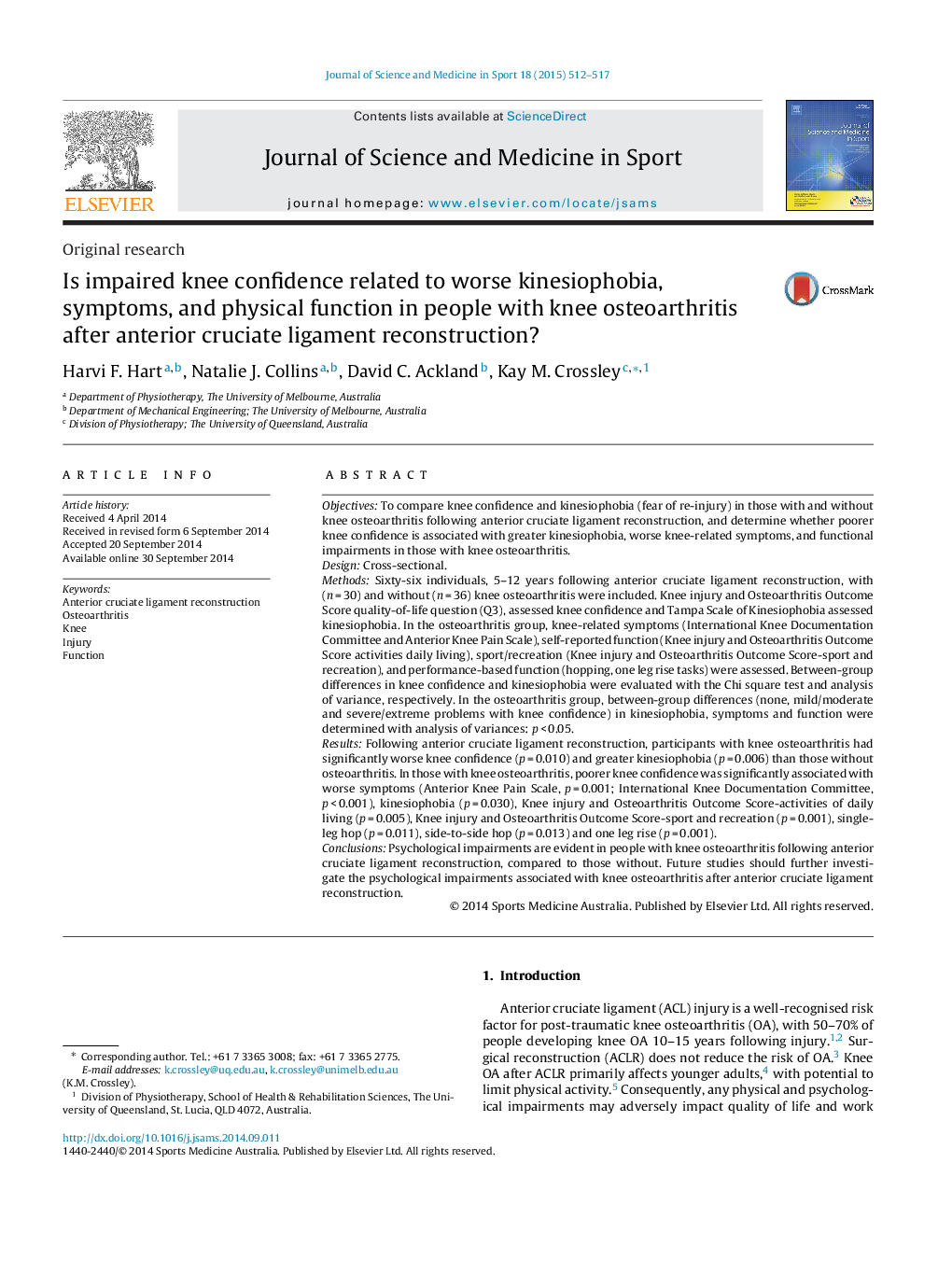| کد مقاله | کد نشریه | سال انتشار | مقاله انگلیسی | نسخه تمام متن |
|---|---|---|---|---|
| 5872835 | 1144433 | 2015 | 6 صفحه PDF | دانلود رایگان |
ObjectivesTo compare knee confidence and kinesiophobia (fear of re-injury) in those with and without knee osteoarthritis following anterior cruciate ligament reconstruction, and determine whether poorer knee confidence is associated with greater kinesiophobia, worse knee-related symptoms, and functional impairments in those with knee osteoarthritis.DesignCross-sectional.MethodsSixty-six individuals, 5-12 years following anterior cruciate ligament reconstruction, with (n = 30) and without (n = 36) knee osteoarthritis were included. Knee injury and Osteoarthritis Outcome Score quality-of-life question (Q3), assessed knee confidence and Tampa Scale of Kinesiophobia assessed kinesiophobia. In the osteoarthritis group, knee-related symptoms (International Knee Documentation Committee and Anterior Knee Pain Scale), self-reported function (Knee injury and Osteoarthritis Outcome Score activities daily living), sport/recreation (Knee injury and Osteoarthritis Outcome Score-sport and recreation), and performance-based function (hopping, one leg rise tasks) were assessed. Between-group differences in knee confidence and kinesiophobia were evaluated with the Chi square test and analysis of variance, respectively. In the osteoarthritis group, between-group differences (none, mild/moderate and severe/extreme problems with knee confidence) in kinesiophobia, symptoms and function were determined with analysis of variances: p < 0.05.ResultsFollowing anterior cruciate ligament reconstruction, participants with knee osteoarthritis had significantly worse knee confidence (p = 0.010) and greater kinesiophobia (p = 0.006) than those without osteoarthritis. In those with knee osteoarthritis, poorer knee confidence was significantly associated with worse symptoms (Anterior Knee Pain Scale, p = 0.001; International Knee Documentation Committee, p < 0.001), kinesiophobia (p = 0.030), Knee injury and Osteoarthritis Outcome Score-activities of daily living (p = 0.005), Knee injury and Osteoarthritis Outcome Score-sport and recreation (p = 0.001), single-leg hop (p = 0.011), side-to-side hop (p = 0.013) and one leg rise (p = 0.001).ConclusionsPsychological impairments are evident in people with knee osteoarthritis following anterior cruciate ligament reconstruction, compared to those without. Future studies should further investigate the psychological impairments associated with knee osteoarthritis after anterior cruciate ligament reconstruction.
Journal: Journal of Science and Medicine in Sport - Volume 18, Issue 5, September 2015, Pages 512-517
